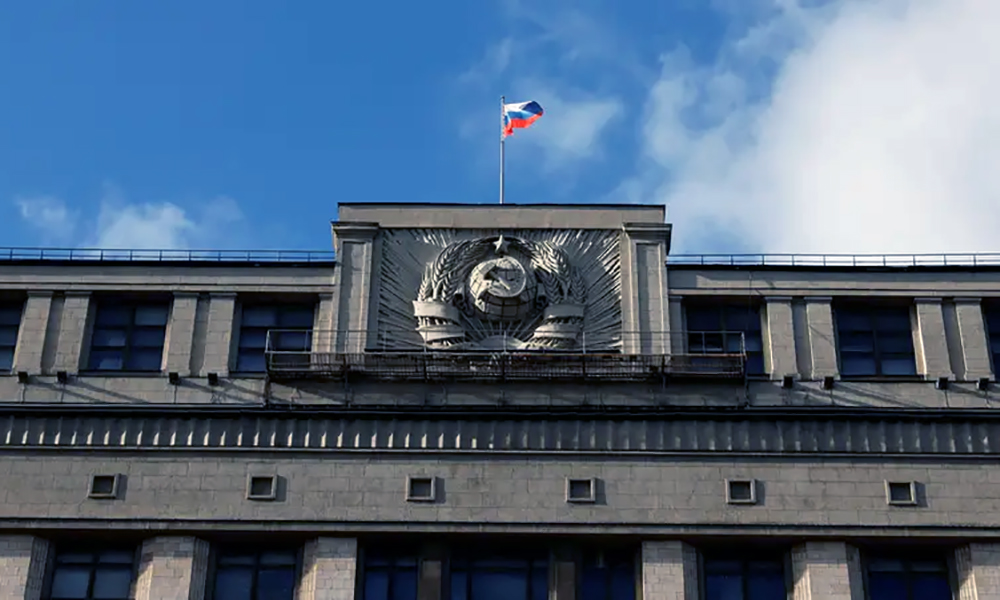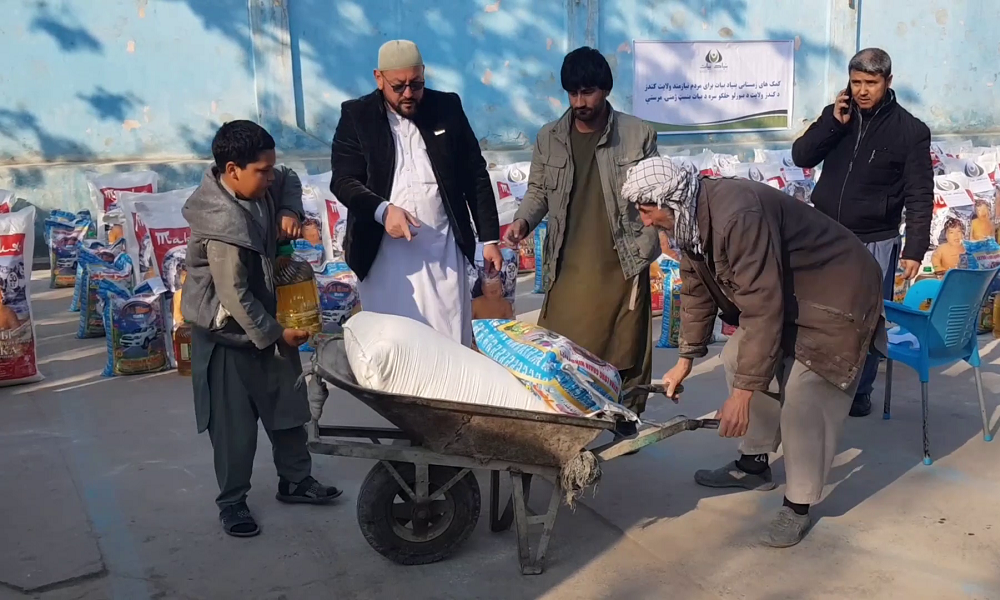Latest News
Islamic Emirate’s narcotics policy has ‘devastated’ livelihoods in rural areas: ICG
Farmers have lost an estimated $1.3 billion annually, or eight percent of GDP in 2023.

The International Crisis Group (ICG) has said the Islamic Emirate of Afghanistan’s (IEA) anti-drug policies provide an opportunity to stabilize the country’s economy although it has “devastated livelihoods in rural areas”.
ICG, an international think-tank, said in a report published Thursday, titled ‘Trouble In Afghanistan’s Opium Fields: The Taliban War On Drugs’, that the Islamic Emirate’s ban has been “one of the most successful poppy elimination efforts in modern history.”
Late last year, the UN Office on Drugs and Crime said opium cultivation fell throughout the country to just 10,800 hectares in 2023 from 233,000 hectares the previous year, slashing supply by 95 percent following the Islamic Emirate’s ban on all cultivation of opium poppy in April 2022.
However, the report warns that as long as rural Afghans lack alternative livelihood opportunities, the likelihood of large-scale displacement and rising emigration will remain high.
The international think tank, known for policymaking advisories, said: “Making the narcotics policy (of the interim administration) sustainable and equitable will require a multilateral effort between Afghanistan and the outside world.”
“In the meantime, the Taliban (IEA) should adopt more lenient measures as it implements its eradication campaign to enable the poorest farmers and those most impacted by the ban to gradually transition away from the poppy as a cash crop,” ICG stated.
“The anti-drug initiative is in many foreign actors’ interest, creating opportunities for donors to support Afghanistan’s economic stabilization” - ICG
However, legal crops will not offer sufficient employment, so the focus should be on job creation in non-farm industries, the group suggested.
ICG also stated that the ban’s future is uncertain; although the Islamic Emirate is adamant about implementing it, “it could collapse under the weight of economic hardship.”
“Foreign donors, who have much to gain from reduced drug production in Afghanistan, should harness the Taliban’s (IEA) zeal for counter-narcotics and encourage licit economic growth. In the meantime, the Taliban should consider the welfare of the poorest farmers and implement a phased approach to the ban.”
By UN estimates, the halt to opium farming has affected the livelihoods of almost seven million people and while underworld kingpins and big landowners have thrived under the ban, reaping the benefits of skyrocketing prices by selling stockpiles, many farmers have suffered.
Farmers have lost an estimated $1.3 billion annually, or eight percent of GDP in 2023.
Farm work remains the biggest source of employment for Afghan women and the ban has hit them especially hard and the economic shock has been compounded by the Islamic Emirate’s limited capacity to offer farmers and rural workers alternatives.
“Many switched to cultivating wheat or cotton, but struggle to make ends meet. Development of licit agriculture would require more irrigation, cold storage facilities and better roads. The Taliban does not have the budget to develop such infrastructure.
“Meanwhile, the opium price has soared, tempting farmers to flout the ban,” ICG said.
“While the Taliban’s measures have shaken the drug sector to its very foundations, the future of the ban remains in doubt.
“Some experts predict that its economic impact will force the Taliban to backtrack on a signature policy. Of course, it is also possible that the Taliban leadership will remain stubborn and steadfast,” ICG stated.
The group stated that support could focus on rural development, agricultural support, water conservation and investments in agro-processing.
“But the reality is that a drug-free agricultural sector will not provide enough jobs, so the country needs a development plan focusing more broadly on non-farm employment, including for women.”
ICG stated that a full transition away from the dependence on narcotics as a cash crop will take time. Instead, the Islamic Emirate “should show a bit of leniency.”
“Adopting more lenient practices such as turning a blind eye to small garden plots of poppy and cannabis would give the poorest farmers a better chance of survival in the coming years. Farmers selling tiny amounts of opium for prices hundreds of times higher than what is paid for other crops would give them a lifeline without jeopardizing the ban’s overall objectives,” the report stated.
Latest News
ATN’s hat-trick! Rights in place to broadcast ICC World Test Championship 2023/25 Final

Ariana Television and Radio Network (ATN) has done it again! This time it secured the rights to broadcast the ICC World Test Championship 2023/25 Final in Afghanistan.
The 2023–2025 ICC World Test Championship is an ongoing tournament of Test Cricket which is the third edition of the ICC World Test Championship.
This event started in June 2023 with The Ashes, which was contested between England and Australia. It will finish in June 2025 with the final match planned to be played at Lord's in London.
The tournament consists of 27 series and 69 matches in the league stage between nine countries. The top two teams in the points table will compete at the final.
Current State of Play
A draw this week in the third Test between Australia and India has spiced up the race to the World Test Championship Final especially as Australia and India continue to play catch-up with South Africa after the rain-truncated third Test in Brisbane ended in a stalemate.
South Africa had to dig deep against Sri Lanka recently, but a standout all-round performance helped them secure a series win and pushed them to the top of the standings, placing them as the front-runners for the WTC25 Final at Lord’s.
Alongside South Africa, Australia and India, Sri Lanka remains the only other team in contention for a WTC25 Final spot. However, they will need a string of favorable results - including a successful showing in their upcoming two-match series against Australia in January - to keep their hopes alive.
South Africa is top of the standings with a PCT of 63.33. They need to win one out of their two upcoming tests against Pakistan to reach their maiden ICC WTC final.
Australia and India are in second and third place respectively.
India has a PCT of 55.88 and two tests left, both of which they need to win to secure a place in the final.
Australia’s PCT is 58.89. After two tests against India. They have two more tests in Sri Lanka.
For cricket fans across the country, make sure you follow us on social media, and watch this spot, for updates and announcements on this event - along with other exciting tournaments coming up next year that Ariana Television will be bringing to you live and exclusively in Afghanistan.
Latest News
Russian law paves way to recognise Islamic Emirate of Afghanistan
No country currently recognises the IEA government which regained control of Afghanistan in August 2021.

Russia's parliament passed a law on Tuesday that would allow courts to suspend bans on groups designated by Moscow as terrorist organisations - paving the way for it to normalise ties with the Islamic Emirate of Afghanistan annd potentially with the new leadership of Syria.
No country currently recognises the IEA government which regained control of Afghanistan in August 2021.
But Russia has been gradually building ties with the Islamic Emirate, which President Vladimir Putin said in July was now an ally in fighting terrorism.
In addition, the leader of Russia's Muslim region of Chechnya, Ramzan Kadyrov, called on Monday for the removal of Syrian group Hayat Tahrir al-Sham (HTS) from Moscow's list of banned groups.
HTS spearheaded the toppling of Syrian President Bashar al-Assad earlier this month.
Kadyrov, a close Putin ally, said Russia needed ties to the new Syrian authorities to ensure stability and prevent a humanitarian catastrophe.
The Kremlin said this week that Russia was in contact with the new leadership in Syria, where it hopes to retain the use of an airfield and a naval base that give it an important military foothold in the Mediterranean.
Security threat
Moscow sees a major security threat from Islamist militant groups based in a string of countries from Afghanistan to the Middle East, where Russia lost a major ally with the fall of Assad, Reuters reported.
In March, gunmen killed 145 people at a concert hall outside Moscow in an attack claimed by Islamic State.
U.S. officials said they had intelligence indicating it was the Afghan branch of the group, Islamic State Khorasan (ISIS-K), that was responsible.
However, the IEA has repeatedly said it is working to wipe out the presence of ISIS-K in Afghanistan.
Russia’s history in Afghanistan
Russia has a complex and bloodstained history in Afghanistan.
Soviet troops invaded the country in December 1979 to prop up a Communist government, but became bogged down in a long war against mujahideen fighters armed by the United States.
Soviet leader at the time, Mikhail Gorbachev, pulled his army out in 1989, by which time some 15,000 Soviet soldiers had been killed.
Latest News
Kunduz families get much needed food aid, thanks to Bayat Foundation
The Bayat Foundation is a stalwart in terms of assisting needy people, not only through its winter food aid campaign but also in times of disaster.

As part of its ongoing commitment to supporting needy families in winter in Afghanistan, the Bayat Foundation has once again provided essential food aid to hundreds of needy families in Kunduz province.
The Bayat Foundation’s representative in the northeastern zone, Khair Mohammad Saljoqi, explained that the relief packages included flour, rice, and oil, which were distributed to the needy after a thorough survey.
He stated: “The Bayat Charity Foundation continues its annual winter aid distribution [program]. This year, we have prepared winter relief packages for the needy in Kunduz, and today we are witnessing the distribution.”
Meanwhile, recipients have expressed their gratitude for the timely delivery of the relief packages and have called for further assistance from other humanitarian organizations for impoverished families.
One of the aid recipients, expressed his appreciation, saying: "We are very grateful to the Bayat Foundation."
Another recipient said: “We are very happy that the Bayat Foundation has helped the poor people. May God give strength to the Bayat Foundation to continue helping needy families, as it is winter, the weather is cold, and there is no work.”
Additionally, several women, who are the sole breadwinners for their families, shared that they have no food or warm clothing to get them through winter and are in desperate need of such assistance.
They also thanked the Bayat Foundation for their assistance.
Rukhshana, one of the recipients, said: “Please help us. We don’t have a breadwinner at home. I have small children. Traders should help us. We have no firewood, no coal. We thank the Bayat Foundation for helping us.”
The Bayat Foundation is a stalwart in terms of assisting needy people, not only through its winter food aid campaign but also in times of disaster.
Foundation officials have meanwhile stressed that given the growing poverty and worsening hardships people are facing in the country, their winter aid program will continue to be rolled out to other provinces.
-

 Latest News4 days ago
Latest News4 days agoAfghanistan seals T20I series victory over Zimbabwe
-

 World4 days ago
World4 days agoSyrian clerics in former Assad stronghold call for national unity, democracy
-

 Latest News4 days ago
Latest News4 days agoU.S. sentences Afghan man to 30 years in prison for narco-terrorism and witness tampering
-

 International Sports3 days ago
International Sports3 days agoMessi vs Ronaldo: A look at their market values over the years
-

 Latest News4 days ago
Latest News4 days agoInvestment in Afghanistan’s pharmaceutical sector reaches $300 million: Union
-

 Latest News4 days ago
Latest News4 days agoChinese, Tajik officials discuss Afghanistan
-

 Sport4 days ago
Sport4 days agoAfghanistan’s Gulbaddin Naib fined 15% of match fee for dissent
-

 Regional3 days ago
Regional3 days agoHezbollah chief says group lost its supply route through Syria
























